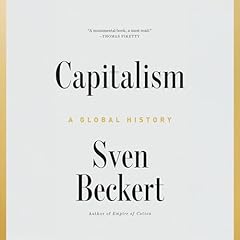
Blood and Treasure
The Economics of Conflict from the Vikings to Ukraine
Impossible d'ajouter des articles
Désolé, nous ne sommes pas en mesure d'ajouter l'article car votre panier est déjà plein.
Veuillez réessayer plus tard
Veuillez réessayer plus tard
Échec de l’élimination de la liste d'envies.
Veuillez réessayer plus tard
Impossible de suivre le podcast
Impossible de ne plus suivre le podcast
0,00 € les 60 premiers jours
Offre à durée limitée
3 mois pour 0,99 €/mois
Offre valable jusqu'au 29 janvier 2026 à 23 h 59.
Jusqu'à 90% de réduction sur vos 3 premiers mois.
Écoutez en illimité des milliers de livres audio, podcasts et Audible Originals.
Sans engagement. Vous pouvez annuler votre abonnement chaque mois.
Accédez à des ventes et des offres exclusives.
Écoutez en illimité un large choix de livres audio, créations & podcasts Audible Original et histoires pour enfants.
Recevez 1 crédit audio par mois à échanger contre le titre de votre choix - ce titre vous appartient.
Gratuit avec l'offre d'essai, ensuite 9,95 €/mois. Possibilité de résilier l'abonnement chaque mois.
Acheter pour 24,48 €
-
Lu par :
-
Duncan Weldon
-
De :
-
Duncan Weldon
À propos de ce contenu audio
'Absolutely fascinating and totally absorbing' JAMES HOLLAND
'A brilliant book' MARTIN WOLF, FINANCIAL TIMES CHIEF ECONOMICS EDITOR
'Chock full of marvellous nuggets, this fascinating book is both important and surprisingly cheering' ED CONWAY
'A delightfully quirky approach to military history' SPECTATOR
Wars are expensive, both in human terms and monetary ones. But while warfare might be costly it has also, at times, been an important driver of economic change and progress. Over the long span of history nothing has shaped human institutions - and thus the process of economic development - as much as war and violence. Wars made states and states made wars. As the costs of warfighting grew so did state structures, taxation systems and national markets for debt. And as warfare became ever more destructive the incentive for governments to resort to it changed too.
Blood and Treasure looks at the history and economics of warfare from the Viking Age to the war in Ukraine, examining how incentives and institutions have changed over time. It surveys how warfare may have driven Europe's rise to global prominence, and it explains how the total wars of the twentieth century required a new type of strategy, one that took economics seriously.
Along the way it asks whether Genghis Khan should be regarded as the father of globalisation, explains how New World gold and silver kept Spain poor, ponders why some economists think of witch trials as a form of 'non-price competition', notes how pirate captains were pioneers of effective HR techniques, asks if handing out medals hurt the Luftwaffe in the Second World War and assesses if economic theories helped to create a tragedy in Vietnam. As well as considering why some medieval kings were right to arm their soldiers with inferior weapons, taking some management lessons from Joseph Stalin and asking if a culture of patronage and cronyism helped the Royal Navy rise to greatness.
Underpinning it all is a focus on how and why the economics of conflict have changed over time. Economics can help to explain war and understanding the history of warfare can help explain modern economics.©2025 Duncan Weldon (P)2025 Little, Brown Book Group Limited

Vous êtes membre Amazon Prime ?
Bénéficiez automatiquement de 2 livres audio offerts.Bonne écoute !
Aucun commentaire pour le moment






















